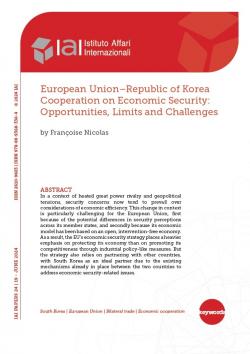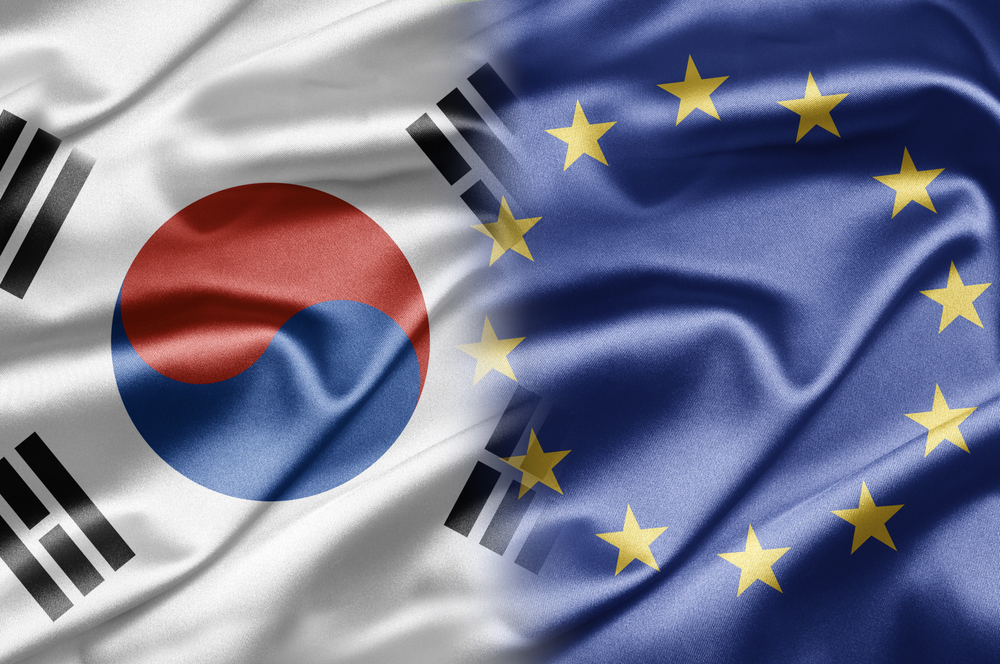European Union–Republic of Korea Cooperation on Economic Security: Opportunities, Limits and Challenges

This piece is a revised version of a paper presented at the conference on “New Convergences in EU-ROK Economic Security Relations”, organised in Rome on 30 January 2024 by the Istituto Affari Internazionali (IAI).

In a context of heated great power rivalry and geopolitical tensions, security concerns now tend to prevail over considerations of economic efficiency. This change in context is particularly challenging for the European Union, first because of the potential differences in security perceptions across its member states, and secondly because its economic model has been based on an open, intervention-free economy. As a result, the EU’s economic security strategy places a heavier emphasis on protecting its economy than on promoting its competitiveness through industrial policy-like measures. But the strategy also relies on partnering with other countries, with South Korea as an ideal partner due to the existing mechanisms already in place between the two countries to address economic security-related issues.
Table of content
Introduction
1. The rise of economic security concerns
1.1 The discontent with globalisation
1.2 Defining economic security
2. The EU and economic security
2.1 The need for a paradigm shift in the EU
2.2 The EU’s economic security strategy: Derisking as a priority
2.3 The instruments of EU’s economic security strategy
3. Scope for cooperation on economic security
3.1 General considerations on the challenges of bilateral cooperation
3.2 The way forward
References
>>> Read the article on the Instituto Affari Internazionali's website.

Available in:
Regions and themes
ISBN / ISSN
Share
Related centers and programs
Discover our other research centers and programsFind out more
Discover all our analyses
RAMSES 2024. A World to Be Remade
For its 42nd edition, RAMSES 2024 identifies three major challenges for 2024.

France and the Philippines should anchor their maritime partnership
With shared interests in promoting international law and sustainable development, France and the Philippines should strengthen their maritime cooperation in the Indo-Pacific. Through bilateral agreements, expanded joint exercises and the exchange of best practices, both nations can enhance maritime domain awareness, counter security threats and develop blue economy initiatives. This deeper collaboration would reinforce stability and environmental stewardship across the region.

The China-led AIIB, a geopolitical tool?
The establishment of the Asian Infrastructure Investment Bank (AIIB) in 2016, on a Chinese initiative, constituted an attempt to bridge the gap in infrastructure financing in Asia. However, it was also perceived in the West as a potential vehicle for China’s geostrategic agendas, fueling the suspicion that the institution might compete rather than align with existing multilateral development banks (MDBs) and impose its own standards.
Jammu and Kashmir in the Aftermath of August 2019
The abrogation of Article 370, which granted special status to the state of Jammu and Kashmir (J&K), has been on the agenda of the Bharatiya Janata Party (BJP) for many decades.









